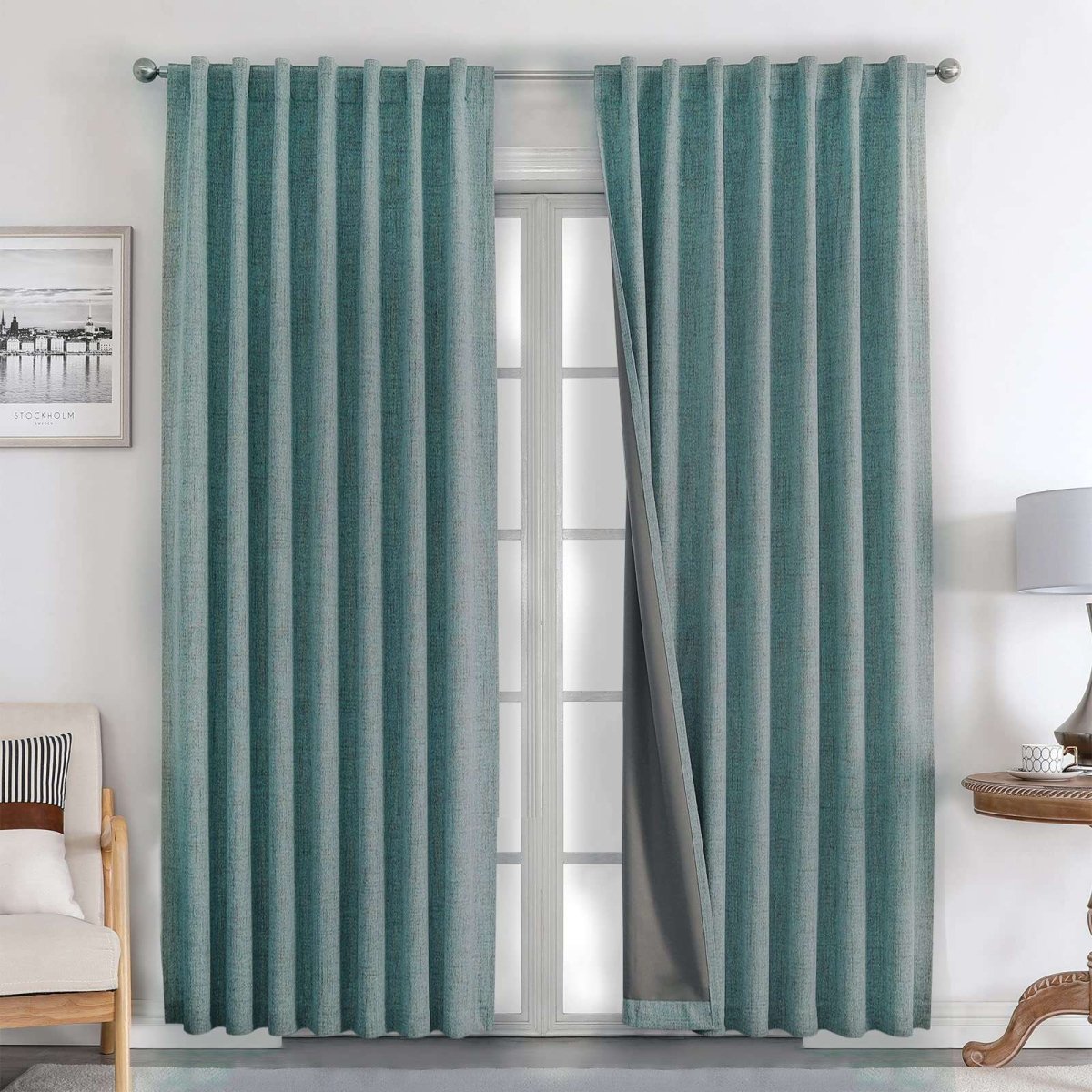Transform Your Winter Vibe: Discover the Secret to Cozy Homes with Thermal Curtains!
As winter approaches, the quest for a cozy and warm home becomes paramount. One often-overlooked solution to enhance comfort during the colder months is the installation of thermal curtains. These specially designed window treatments serve as a barrier against the cold, significantly improving your home’s energy efficiency. By retaining heat inside and blocking chilly drafts, thermal curtains transform your living spaces into inviting havens. In this article, we’ll delve into the benefits of thermal curtains, guide you on choosing the right ones, and provide essential tips for installation and maintenance. Get ready to embrace the winter season with warmth and style!

The Benefits of Thermal Curtains in Winter
Thermal curtains boast a variety of advantages that make them ideal for winter use. One of the primary benefits is their insulation properties. Made from thick, heavy fabrics, these curtains trap heat indoors, creating a warm and comfortable environment. A friend of mine, Sarah, recently installed thermal curtains in her living room and noticed a marked difference in the temperature; her space felt significantly cozier, even on the coldest days. In addition to providing warmth, thermal curtains can lead to substantial energy savings. By reducing the need for constant heating, they help lower energy bills during the winter months. Furthermore, they assist in temperature regulation, ensuring that your home remains at a comfortable level throughout the day and night.
Choosing the Right Thermal Curtains
Selecting the appropriate thermal curtains is crucial to maximize their effectiveness. When shopping, consider the material; heavier fabrics like polyester or velvet tend to provide better insulation compared to lighter options. Additionally, the thickness of the fabric plays a significant role in performance—opt for curtains with a higher density for optimal results. Color and style are equally important; choose shades that complement your home decor while also reflecting warmth. It's also essential to measure your windows accurately to ensure a snug fit, as gaps can allow cold air to seep in, diminishing the benefits of your thermal curtains. Remember, the right choice can enhance both the aesthetic and functional aspects of your space.
Installation Tips for Thermal Curtains
Proper installation is key to achieving the desired energy efficiency. Consider the height at which you hang your thermal curtains; ceiling mount can provide better coverage but be sure to secure them close to the window to prevent leaks. If possible, use clips or hooks to hang your curtains; this not only creates an elegant illusion but also helps with heat retention by minimizing any small openings or gaps. Make sure your thermal curtains are floor-length to provide maximum coverage against cold drafts. Additionally, ensure a snug fit without any gaps that can allow cold air in, which will diminish the insulating capabilities of your curtains.
Maintaining Your Thermal Curtains
To ensure your thermal curtains perform well over time, regular maintenance is essential. Most thermal curtains can be machine washed, but it's advisable to check the care label for specific instructions. Gentle cycles and cold water can prevent fading and shrinkage. Additionally, inspect your curtains periodically for any signs of wear and tear, such as fraying edges or fabric thinning. Keeping your curtains clean and in good condition will not only extend their lifespan but also maintain their insulating properties, ensuring your home remains cozy throughout the winter.
Key Takeaways on Thermal Curtains
In summary, thermal curtains are an invaluable addition to any home during the winter months. They not only enhance comfort by insulating against cold drafts but also contribute to energy savings, allowing you to keep your heating costs in check. By choosing the right thermal curtains, following proper installation techniques, and maintaining them well, you can ensure a warm and inviting atmosphere all season long. As winter unfolds, consider investing in thermal curtains to transform your home into a cozy retreat that you and your family can enjoy to the fullest.








